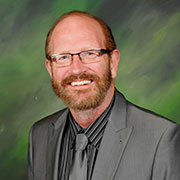Question
Children's Learning & DevelopmentWe speak both English and Mandarin to our child interchangeably. Should we just stick to one?
What the Expert Says

Dean of Research and Program Development at MindChamps
Internationally-acclaimed author of more than 300 books, mainly of which have won literary awards
Established speaker and literacy consultant
Research has shown that young children are experiential learners. They would progress at their own pace through activities and promote cognitive development naturally in a fun and engaging environment.
In my view, bilingual and native tongue environments offer major advantages to preschoolers as they develop their language and thinking skills, helping to prepare them for Primary School.
Infant Exposed to 2 Languages are Better Learners
In fact, in a recent long-term birth cohort study conducted from 2011 to 2014, it was discovered that 6-month old infants spoken to in two languages display better learning and memory than infants exposed to one language.
This study, which involved Singaporean mothers and their offspring, also found that there was a generalised cognitive advantage that emerges early in bilingual infants, and is not specific to a particular language.
This was conducted by A*STAR, KK Women’s and Children’s Hospital (KKH) and the National University Hospital (NUH).
Another study from York University in Toronto, Canada (a bilingual country), also suggests that exposure to two languages may actually give toddlers a cognitive advantage over young children who use only one language. It shows that bilingual children:
1. Are more likely to apply ‘selective attention’ – that is, to focus on the important task and be less likely to become distracted.
2. Show ‘cognitive flexibility’ – that is, changing responses according to the demands of the situation
In essence, you can play a part in helping your child achieve the bilingual advantage. Starting school with a significant cognitive advantage in ‘executive functioning’ can have an important impact on both their academic and social future.
More Expert Opinions
There is no musical talent in my family. Is it a waste of time for my child to take music lessons?
Music for Young Children
There is no musical talent in my family. Is it a waste of time for my child to take music lessons?

Will playing the piano in a small room be damaging to child’s ears? Where should be the ideal place to put the piano?
Music for Young Children
I place the piano in my five-year-old's bedroom for him to practise before he sleeps. But will playing the piano in the small room be too loud or damaging to his ears? Where should be the ideal place to put the piano?

What music should I play to help my new-born develop music interest?
Music for Young Children
I let my new-born listen to nursery rhymes everyday. What other music should I play to help him develop music interest?



Give your Opinions